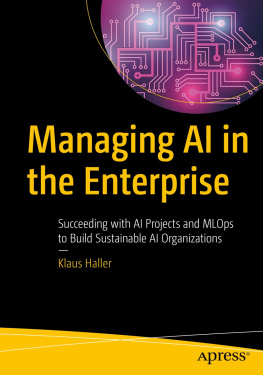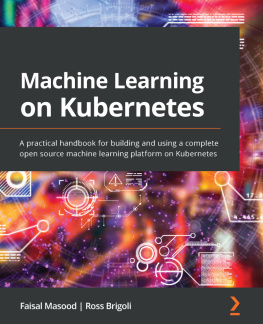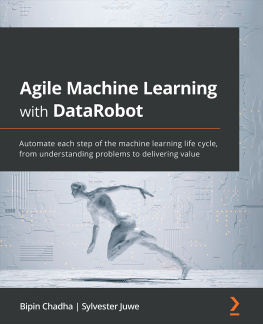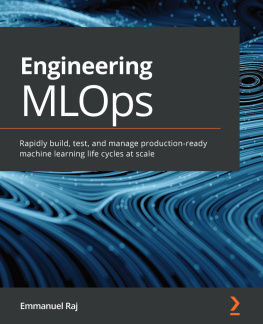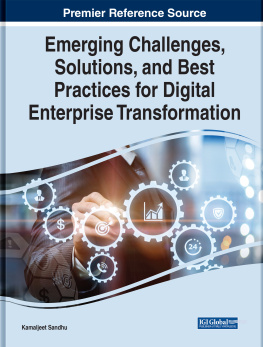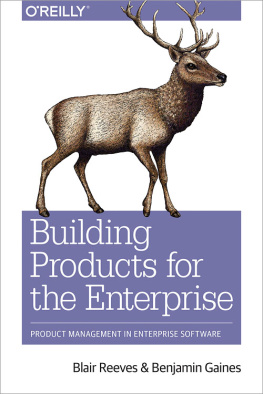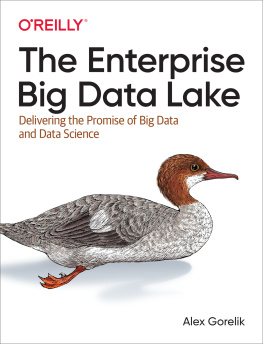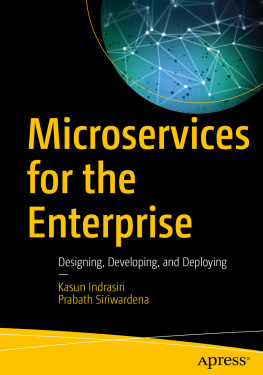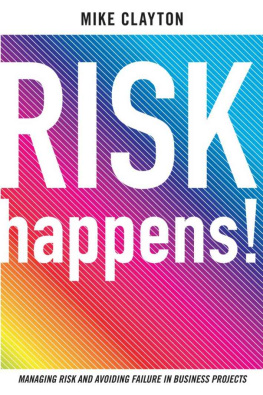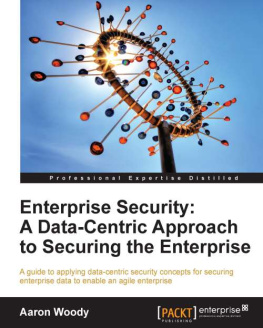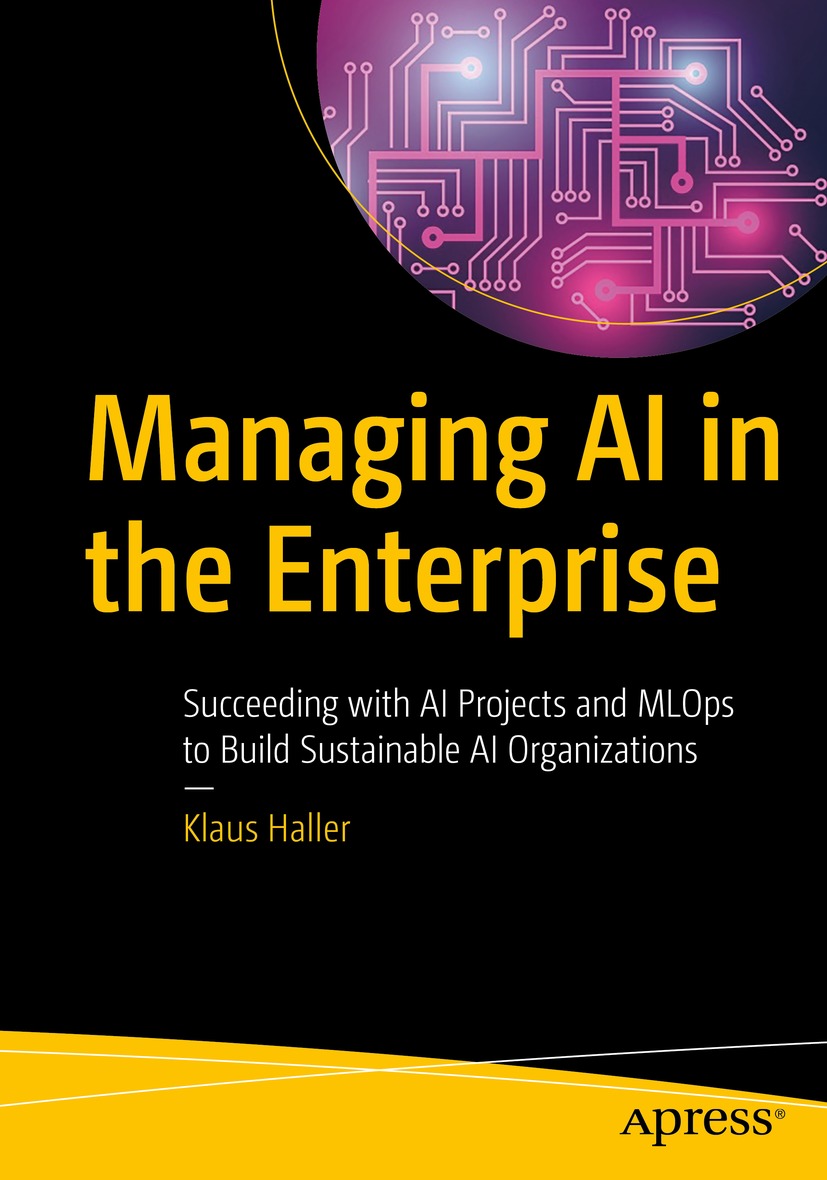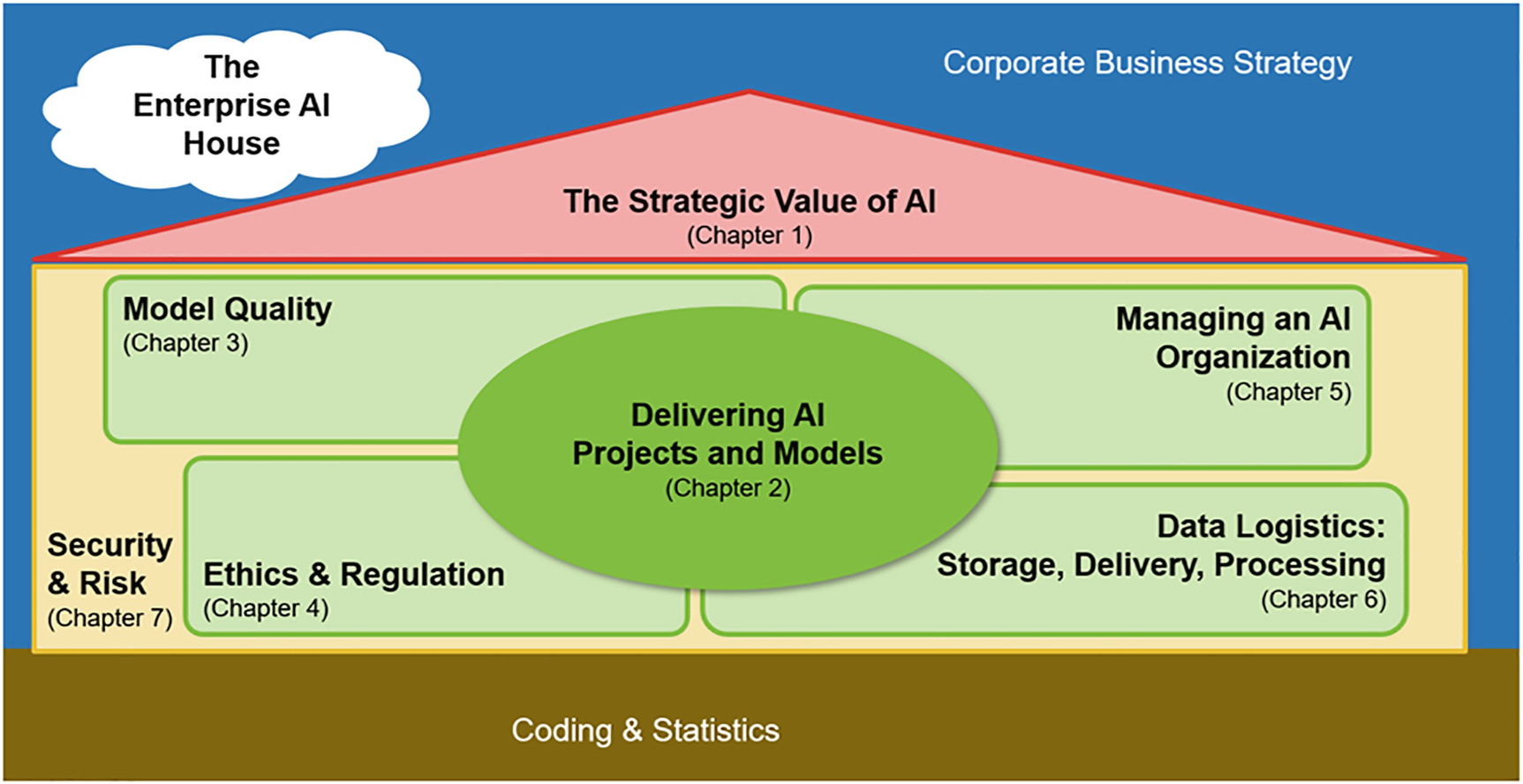Klaus Haller - Managing AI in the Enterprise: Succeeding with AI Projects and MLOps to Build Sustainable AI Organizations
Here you can read online Klaus Haller - Managing AI in the Enterprise: Succeeding with AI Projects and MLOps to Build Sustainable AI Organizations full text of the book (entire story) in english for free. Download pdf and epub, get meaning, cover and reviews about this ebook. year: 2021, publisher: Apress, genre: Business. Description of the work, (preface) as well as reviews are available. Best literature library LitArk.com created for fans of good reading and offers a wide selection of genres:
Romance novel
Science fiction
Adventure
Detective
Science
History
Home and family
Prose
Art
Politics
Computer
Non-fiction
Religion
Business
Children
Humor
Choose a favorite category and find really read worthwhile books. Enjoy immersion in the world of imagination, feel the emotions of the characters or learn something new for yourself, make an fascinating discovery.
- Book:Managing AI in the Enterprise: Succeeding with AI Projects and MLOps to Build Sustainable AI Organizations
- Author:
- Publisher:Apress
- Genre:
- Year:2021
- Rating:4 / 5
- Favourites:Add to favourites
- Your mark:
Managing AI in the Enterprise: Succeeding with AI Projects and MLOps to Build Sustainable AI Organizations: summary, description and annotation
We offer to read an annotation, description, summary or preface (depends on what the author of the book "Managing AI in the Enterprise: Succeeding with AI Projects and MLOps to Build Sustainable AI Organizations" wrote himself). If you haven't found the necessary information about the book — write in the comments, we will try to find it.
Delivering AI projects and building an AI organization are two big challenges for enterprises. They determine whether companies succeed or fail in establishing AI and integrating AI into their digital transformation. This book addresses both challenges by bringing together organizational and service design concepts, project management, and testing and quality assurance. It covers crucial, often-overlooked topics such as MLOps, IT risk, security and compliance, and AI ethics. In particular, the book shows how to shape AI projects and the capabilities of an AI line organization in an enterprise. It elaborates critical deliverables and milestones, helping you turn your vision into a corporate reality by efficiently managing and setting goals for data scientists, data engineers, and other IT specialists.
For those new to AI or AI in an enterprise setting you will find this book a systematic introduction to the field. You will get the necessary know-how to collaborate with and lead AI specialists and guide them to success. Time-pressured readers will benefit from self-contained sections explaining key topics and providing illustrations for fostering discussions in their next team, project, or management meeting. Reading this book helps you to better sell the business benefits from your AI initiatives and build your skills around scoping and delivering AI projects. You will be better able to work through critical aspects such as quality assurance, security, and ethics when building AI solutions in your organization.
What You Will Learn
- Clarify the benefits of your AI initiatives and sell them to senior managers
- Scope and manage AI projects in your organization
- Set up quality assurance and testing for AI models and their integration in complex software solutions
- Shape and manage an AI delivery organization, thereby mastering ML Ops
- Understand and formulate requirements for the underlying data management infrastructure
- Handle AI-related IT security, compliance, and risk topics and understand relevant AI ethics aspects
Who This Book Is For
Experienced IT managers managing data scientists or who want to get involved in managing AI projects, data scientists and other tech professionals who want to progress toward taking on leadership roles in their organizations AI initiatives and who aim to structure AI projects and AI organizations, any line manager and project manager involved in AI projects or in collaborating with AI teams
Klaus Haller: author's other books
Who wrote Managing AI in the Enterprise: Succeeding with AI Projects and MLOps to Build Sustainable AI Organizations? Find out the surname, the name of the author of the book and a list of all author's works by series.

